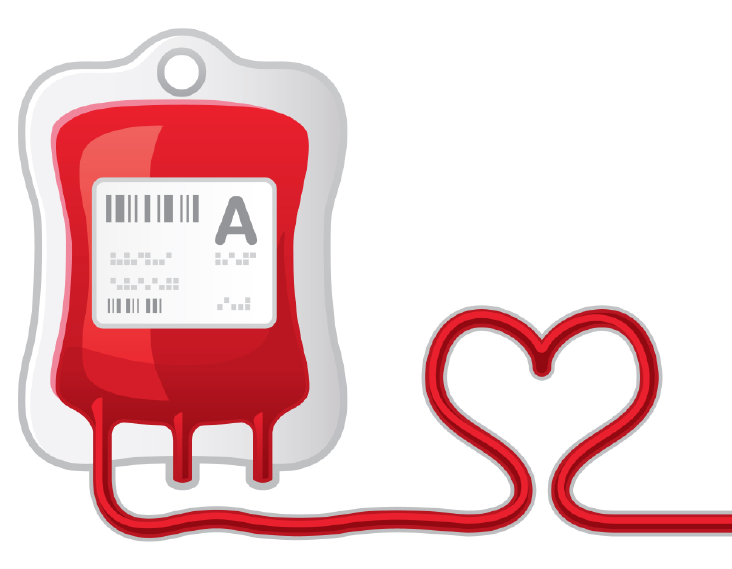Dr Michael Moreton explains why there are regular appeals for foreigners to donate blood in Thailand
| TRANSFUSING blood to patients who have lost their own blood due to accidents or during surgery is a truly life-saving procedure. In Thailand and other Asian countries there are frequent appeals to the foreign community for blood donations for injured or sick western patients. All countries, including Thailand, have well developed Blood Banks and it may be of some surprise that they are caught without available blood for these patients. Each time there is a need for blood the patient must have their blood type identified, for if they are given incompatible blood there will be a reaction between the two bloods with terrible consequences. The reason for shortages is that the distribution of the various types of blood is different in different ethnic groups. There are two factors that differentiate one person’s blood from another. The first is the A,B,O system; the other is the Rhesus (Rh) system. |
A, B, AB, O: This system was discovered by an Austrian doctor over 100 years ago. In Europe and countries like the US, Canada, Australia and New Zealand – 48% have type A, 40% type O, 9% type B, and 3% type AB. In Thailand, the numbers are 40%, 18%, 36% and 5%, respectively. These numbers, although a little different, do not cause any problem as they are close enough so that donors are available in each category. Patients with A blood can accept A or O; B can accept B or O; AB any of the four types; and type O can only accept type O blood.
RHESUS: The Rh system is quite independent of the ABO system. Patients are either Rhesus positive (Rh+) or Rhesus negative (Rh-) and here there is a huge difference in numbers.
In western countries approximately 15-20% of patients have Rh- blood, in Thailand only about 1%.
You can give Rh- blood to Rh+ patients, but you cannot give Rh+ blood to Rh- patients.
Put the two sets of stats together and you will see the problem. If we take 1,000 foreigners, 80 of them will have A- blood, but among the Thai population only three in 1,000 will have the A- or O- blood that the patient can accept.
O-negative blood is known as the Universal Donor – you can give this blood to any patient. In an emergency situation where there is not enough time to check the blood type, O- is given and Blood Banks just love O- people (they beg them to give blood regularly to be sure that there is a ready supply). In the west approximately 75 out of a 1,000 will have this type of blood, but in Thailand only one in 1,000.
So when you see appeals for blood donations, it’s most likely they will be seeking Rh- blood.
Once blood is donated it must be used within about three weeks, otherwise it will deteriorate. As such, Blood Banks cannot take donations of rare blood types and keep them at hand for long periods.
When I was working in China, we kept a record of all the foreigners with Rh- blood and asked them if they would be part of our “walking blood bank” – ready to come to the hospital if we called them.
When a patient needs to receive blood, family and friends often volunteer, but unfortunately they may not have the correct blood type, meaning the patient is dependent on people that they have never met to provide blood for them.
There are some restrictions on who can give blood. You must not be anemic and the presence of some other diseases will disqualify you. If you are on certain medications that will also disqualify you.
When you go to the Red Cross to donate, they will screen you for these factors. If you do go to donate, do not drink alcohol for 24 hours before you do, and if you take medications in the morning, delay taking them until after donating. In the past each hospital took donations but now it is done through the Red Cross.
It is good to know your blood type. If you do not know it, make sure to ask for it the next time you have a medical checkup.
Dr Mike (A+) [email protected]
RHESUS: The Rh system is quite independent of the ABO system. Patients are either Rhesus positive (Rh+) or Rhesus negative (Rh-) and here there is a huge difference in numbers.
In western countries approximately 15-20% of patients have Rh- blood, in Thailand only about 1%.
You can give Rh- blood to Rh+ patients, but you cannot give Rh+ blood to Rh- patients.
Put the two sets of stats together and you will see the problem. If we take 1,000 foreigners, 80 of them will have A- blood, but among the Thai population only three in 1,000 will have the A- or O- blood that the patient can accept.
O-negative blood is known as the Universal Donor – you can give this blood to any patient. In an emergency situation where there is not enough time to check the blood type, O- is given and Blood Banks just love O- people (they beg them to give blood regularly to be sure that there is a ready supply). In the west approximately 75 out of a 1,000 will have this type of blood, but in Thailand only one in 1,000.
So when you see appeals for blood donations, it’s most likely they will be seeking Rh- blood.
Once blood is donated it must be used within about three weeks, otherwise it will deteriorate. As such, Blood Banks cannot take donations of rare blood types and keep them at hand for long periods.
When I was working in China, we kept a record of all the foreigners with Rh- blood and asked them if they would be part of our “walking blood bank” – ready to come to the hospital if we called them.
When a patient needs to receive blood, family and friends often volunteer, but unfortunately they may not have the correct blood type, meaning the patient is dependent on people that they have never met to provide blood for them.
There are some restrictions on who can give blood. You must not be anemic and the presence of some other diseases will disqualify you. If you are on certain medications that will also disqualify you.
When you go to the Red Cross to donate, they will screen you for these factors. If you do go to donate, do not drink alcohol for 24 hours before you do, and if you take medications in the morning, delay taking them until after donating. In the past each hospital took donations but now it is done through the Red Cross.
It is good to know your blood type. If you do not know it, make sure to ask for it the next time you have a medical checkup.
Dr Mike (A+) [email protected]




















